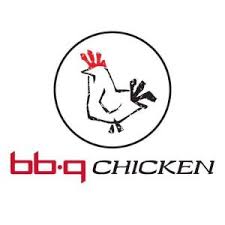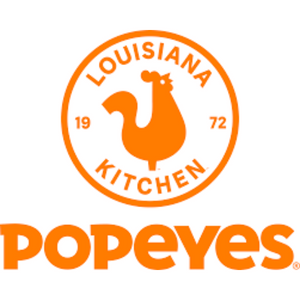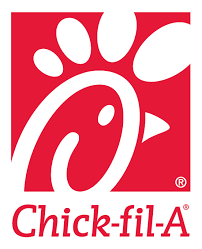Bonchon Franchise in 2025: Costs, Fee & FDD
Explore whether Bonchon is the right investment for you with our in-depth analysis. Discover the brand’s impressive global growth, key financial requirements, and potential earnings, all while weighing the pros and cons of joining this popular franchise.
Table of Contents:
Bonchon, which means “my hometown” in Korean, was founded in 2002 by Jinduk Seo in Busan, South Korea. The franchise quickly gained popularity for its double-fried chicken, which delivers a perfect balance of crispiness and flavor. Bonchon is more than just a restaurant; it’s a global phenomenon that introduced the world to Korean-style fried chicken. The brand has grown rapidly, establishing itself as a significant player in the fast-casual dining scene with a strong focus on authenticity and quality.
Bonchon’s core offering is its signature Korean fried chicken, available in a variety of flavors, including soy garlic and spicy. Alongside the chicken, the menu features other Korean-inspired dishes like Japchae, Bibimbap, and Tteokbokki. These ancillary products not only diversify the menu but also attract a wide range of customers, from casual diners to food enthusiasts seeking an authentic Korean dining experience. The franchise’s core customer base consists of young professionals, families, and foodies who appreciate the unique flavors and high-quality ingredients.
As of now, Bonchon operates over 370 locations across nine countries, including the United States, Philippines, Thailand, and Singapore. The franchise has made significant strides in the U.S. market, with over 100 locations spread across the country. Bonchon’s daily customer base is strong, with each location typically serving hundreds of guests, reflecting the brand’s growing popularity and the demand for its unique offerings. This global reach highlights Bonchon’s appeal and adaptability across different cultures and markets.
The franchise offers a robust support system for its franchisees, including comprehensive training programs that cover everything from food preparation to customer service and business management. Bonchon also provides ongoing marketing support, site selection assistance, and regular updates to ensure that each location maintains the brand’s high standards. The combination of a strong product, a growing global presence, and a supportive franchise network makes Bonchon an attractive opportunity for potential franchisees.
Bonchon Franchise Insights
- Bonchon’s unique double-frying technique gives its chicken an extra crispy texture that has garnered it a loyal following, with over 370 locations worldwide and more than 100 in the U.S. alone.
- The franchise’s U.S. locations have seen a remarkable median unit volume of over $1.48 million annually, showcasing the strong demand and profitability of its unique offerings.
- The franchise’s global expansion has been impressive, with operations in nine countries and a strong foothold in Southeast Asia, demonstrating its ability to adapt and thrive in diverse markets.
Bonchon Franchise Key indicators
Unit Growth YOY (%)
9%
vs industry 1%
Total U.S. Franchised Units
127
3-Year Failure Rate
10%
vs industry 11%
Sales-to-Investment ratio
2.2:1
How much does it cost to open a Bonchon franchise?
Understanding the potential investment size and capital requirements is crucial when considering opening a Bonchon franchise. These financial commitments, including initial franchise fees, equipment costs, and ongoing operational expenses, impact the feasibility and profitability of the venture. Thoroughly evaluating these factors ensures that potential franchisees are prepared for the financial responsibilities and can make informed decisions about their ability to sustain and grow the business, ultimately contributing to long-term success.
Min & Max Investment
Opening a Bonchon franchise involves several key costs, which are outlined in Item 7 of the Franchise Disclosure Document (FDD). You can see a breakdown of the costs to open a Bonchon below from the most recent Item 7 below:
| Type of Expenditure | Minimum Investment | Maximum Investment |
|---|---|---|
| Initial Franchise Fee | $35,000 | $35,000 |
| Pre-Opening Training Expenses | $6,321 | $19,711 |
| Real Property | $6,700 | $25,000 |
| Construction and Leasehold Improvements | $412,500 | $590,000 |
| Equipment | $125,000 | $193,000 |
| Furniture and Fixtures | $45,283 | $66,658 |
| Smallwares and Small Appliances | $23,500 | $25,000 |
| Uniforms | $1,553 | $1,752 |
| Computer and POS System and Other Technology | $20,000 | $32,000 |
| Inventory to Begin Operating | $8,800 | $10,000 |
| Security Deposits, Utility Deposits, Business Licenses, and Other Prepaid Expenses | $5,000 | $15,000 |
| Professional Fees | $4,500 | $6,000 |
| Signs | $8,200 | $15,003 |
| Architect and Engineering Fees | $29,800 | $33,000 |
| Opening Advertising | $5,000 | $10,000 |
| Pre-Opening Labor | $9,615 | $20,415 |
| Additional Funds (Initial Period – 3 months) | $20,000 | $60,000 |
| Total Initial Investment | $768,934 | $1,158,501 |
Item 7 in the Franchise Disclosure Document (FDD) is the “Estimated Initial Investment” section. It outlines the total costs a franchisee can expect to incur when starting a franchise, including the initial franchise fee, equipment, inventory, real estate, and other startup expenses. This section is crucial because it provides potential franchisees with a detailed understanding of the financial commitment required, helping them assess affordability and plan their investment strategy effectively.
Required Capital
To open a Bonchon franchise, the required capital involves both the initial investment costs and a net worth requirement set by Bonchon. Let’s take a closer look below:
- Initial investment The estimated initial investment for opening a Bonchon franchise ranges from $769,000 to $1.2 million. This amount covers essential startup costs, including construction, kitchen equipment, initial inventory, and other expenses like permits and insurance. The range varies depending on the location, size of the restaurant, and specific build-out requirements. A prime location in a high-traffic area or a larger space might push costs towards the higher end of the spectrum. Assuming that you will finance your franchise investment, you should plan to have 20% of the total investment amount in the form of equity (cash) for the investment.
- Liquid assets Prospective franchisees are generally expected to have liquid assets of at least $250,000 to $350,000. Liquid assets include cash or assets that can be quickly converted to cash, like stocks or bonds. This financial cushion ensures that the franchisee can cover operational expenses during the initial phase before the business starts generating sufficient revenue. It also demonstrates financial stability to the franchisor.
- Net worth The typical net worth requirement for a Bonchon franchisee is between $1 million to $2 million. Net worth is the total value of all assets owned (including real estate, investments, and other holdings) minus any liabilities. This requirement helps ensure that the franchisee has the overall financial capacity to sustain the business, especially if unexpected expenses arise or if the business takes longer to reach profitability.
How much does a Bonchon franchise owner make?
Calculating the salary of a Bonchon franchise owner involves analyzing gross sales to determine total revenue, assessing operational efficiency to understand profit margins, and accounting for franchisor fees and additional expenses such as rent, utilities, and payroll. Effective management of these factors can significantly impact the profitability and financial success of a Bonchon franchise owner. This comprehensive financial analysis helps estimate net profits, from which the owner’s salary can be derived. A clear understanding of these factors ensures accurate salary projections and financial planning for sustainable business operations.
Bonchon Revenue & Gross Sales
Based on most recent analysis, Bonchon franchises achieved a median gross sales of $1,478,140. This performance might be the consequence of many factors, internal and external, which haven’t allowed the franchise to get better figures.
Which key factors impact the average revenue performance of Bonchon franchisees?
The growth in Bonchon’s U.S. franchisee median gross sales revenue performance can likely be attributed to several key factors. First, the increasing popularity of Korean cuisine in the U.S. has driven more customers to explore Bonchon, known for its signature double-fried chicken. Additionally, Bonchon has likely benefited from strategic expansions into high-traffic areas and improved marketing efforts, including leveraging digital platforms to attract a broader audience. The brand’s focus on consistency in quality and customer experience, coupled with an evolving menu that caters to diverse tastes, has likely helped maintain customer loyalty and attract new diners, contributing to steady revenue growth during this period.
Bonchon Franchise Operational Costs
When opening a Bonchon franchise, there are several key primary ongoing operational costs to consider:
- Labor Costs Paying your staff, including chefs, kitchen assistants, servers, and management, will likely be one of the largest ongoing expenses. This includes wages, benefits, and any overtime pay.
- Food and Beverage Costs The cost of purchasing high-quality ingredients for Bonchon’s signature dishes, including chicken, sauces, and other Korean-inspired items, will be a significant recurring expense. These costs can fluctuate based on supplier prices and market conditions.
- Rent or Lease Payments Securing a prime location is crucial for attracting customers, and the rent or lease payments for a commercial space can be a substantial ongoing cost, particularly in high-traffic or urban areas.
- Utilities Running a restaurant requires significant energy use for cooking, refrigeration, lighting, and maintaining a comfortable dining environment, leading to consistent utility bills.
- Maintenance and Repairs Regular maintenance of kitchen equipment, seating areas, and overall premises is essential to ensure smooth operations and compliance with health and safety standards. Unexpected repairs can also add to this cost.
Careful oversight and management of these ongoing expenses are vital to maintaining the financial health and operational efficiency of your Bonchon franchise.
Bonchon Franchise Fees
Bonchon requires their franchisees to pay the below fees:
- Continuing Royalty This is a weekly fee paid to Bonchon, typically calculated as a percentage of gross sales. For Bonchon, this fee is 5% of the restaurant’s weekly gross sales.
- System Brand Fund Contribution Currently it’s charged 1.5% of gross revenues, and is payable weekly.
- Additional Fees There are additional fees for training programs, technology, and other items provided by Bonchon that may be applied.
These ongoing fees are essential to consider when planning the financial aspects of owning and operating a Bonchon franchise. They cover the costs of brand support, advertising, and ongoing operational assistance provided by Bonchon.
Bonchon Franchise Earnings
The earnings of a Bonchon franchise owner can vary depending on several factors, including location, sales volume, operational efficiency, and cost management. However, Bonchon franchise owners can expect a healthy income based on the brand’s performance.
Bonchon franchisees have a median gross sales of $1,478,140. Based on these average gross sales, we estimate that a Bonchon franchisee makes approximately $221,721 in estimated earnings per year, assuming the franchisee is an owner-operator. If the franchisee is semi-absentee, then earnings will be lower due to the additional costs of hiring a manager, with semi-absentee owners estimated to earn around $177,377.
How to Open a Bonchon Franchise
Becoming a Bonchon franchisee involves several key steps, from initial inquiry to the grand opening of your restaurant. Here’s an overview of the process:
- Initial Inquiry You or your franchise specialist submits an initial inquiry basic information about your interest and background. You should also conduct thorough research on the franchise, including seeing all of the information available on the Vetted Biz franchise intelligence platform, including access to the most recent Franchise Disclosure Document (FDD).
- Pre-Qualification After your inquiry, Bonchon’s team will review your qualifications, including your financial capacity and experience in the food or business industry. If you meet the initial criteria, you’ll be invited to move forward in the process.
- Discovery Day If you’re still interested after reviewing the FDD, you may be invited to a Discovery Day at Bonchon’s headquarters. This event allows you to meet the corporate team, learn more about the brand’s operations, and ask any questions you might have.
- Application and Approval If both parties are still interested after Discovery Day, you’ll complete a formal franchise application. Bonchon’s team will assess your application, including financial verification, and if approved, you’ll receive a franchise agreement to sign.
- Site Selection and Lease Negotiation Once the agreement is signed, you’ll work with Bonchon’s real estate team to identify and secure a location. They will assist with site selection based on market research and negotiate the lease terms on your behalf.
- Training Program Before opening, you’ll undergo an extensive training program, typically at a Bonchon training facility. This training covers all aspects of running the business, including food preparation, customer service, and management practices.
- Construction and Build-Out After securing your location, the next step is to begin construction and build-out of the restaurant according to Bonchon’s design and operational standards. The franchisor provides guidance throughout this process.
- Pre-Opening Marketing and Staffing As construction wraps up, you’ll begin hiring staff and launching local marketing campaigns to generate buzz around your new location. Bonchon provides marketing support to ensure a successful launch.
- Grand Opening Once everything is in place, you’ll host a grand opening event to welcome your first customers. Bonchon’s team typically assists with the opening to ensure everything runs smoothly and according to plan.
- Ongoing Support After opening, you’ll continue to receive support from Bonchon in areas such as operations, marketing, and product development to help ensure the ongoing success of your franchise.
This structured process is designed to guide you from initial interest to successful operations, with support at every step to help you build a thriving Bonchon franchise.
Pros & Cons
Pros
Growing Popularity of Korean Cuisine: The increasing popularity of Korean food in the U.S. offers a growing market, positioning Bonchon to capitalize on this trend and attract a diverse customer base.
Proven Business Model: With over 370 locations worldwide and a successful track record in various markets, Bonchon’s business model is tested and proven to be profitable, offering a solid foundation for new franchisees.
Menu Variety: Beyond its famous fried chicken, Bonchon offers a diverse menu with Korean-inspired dishes that appeal to a wide range of tastes, increasing its market reach and customer retention.
Cons
High Initial Investment: The initial investment can be steep, ranging from $769,000 to $1.2 million, which may be a significant financial commitment depending on your resources and risk tolerance.
Market Saturation: In some areas, the presence of multiple Bonchon locations or competition from other popular Korean or Asian cuisine restaurants could impact your market share and profitability.
Fluctuating Ingredient Costs: The cost of sourcing high-quality, authentic Korean ingredients can fluctuate, potentially impacting margins, especially if supply chains are disrupted or costs increase.





